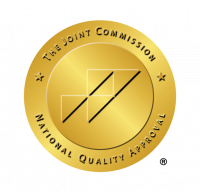People around the globe have been drinking alcohol for centuries. It continues to be a major element of social gatherings and celebrations, and a common vehicle to feel relaxation and pleasure. However, drinking can be problematic for many as heavy consumption can lead to addiction.
If you choose to drink, you may have concerns about the possibility of addiction. Perhaps you’ve found yourself wondering, “How long does it take to get addicted to alcohol?” The short answer is, that there is no short answer to this question, as many factors affect addiction on an individual level.
Ahead we will discuss the signs and symptoms of alcohol addiction, how long it can take to become addicted to alcohol physically, and factors affecting addiction such as one’s genetics, mental health status, and social situation.
The team at Ria Health strives to help people lead healthier lives, with telehealth treatment options for alcohol addiction and those seeking moderation in their drinking. Whether you’re looking for prevention or treatment for alcohol addiction, we can help. If you are concerned about your relationship with alcohol you can schedule a consultation and speak to a caring member of our team today.
What is Alcohol Addiction?
Alcohol addiction is a chronic disease defined by the lack of control to quit drinking regardless of the harmful physical and interpersonal effects that result. Alcohol alters the balance of neurotransmitters in the brain producing feelings of calm and pleasure which can encourage some individuals to increase the frequency of their alcohol consumption. This can eventually lead to alcohol dependency also known as alcohol use disorder.

Schedule a private call with a Ria Health team member and we can help you get started.
Signs and Symptoms of Alcohol Addiction

Some people feel a sense of confusion and worry about whether their drinking is a habit or an addiction. If you are concerned that your drinking may be getting out of control there are some signs and symptoms to look for that point to the likelihood of alcohol addiction.
- Physical: You may experience tremors, sweating, and nausea when alcohol leaves your system. Frequent hangovers can occur from excessive drinking. Insomnia and increased tolerance to alcohol are other common physical signs. Heavy drinking leads to reduced coordination which can result in physical injury and inability to drive safely.
- Behavioral: You may notice an uncontrolled need to drink. Perhaps you observe that you are spending more of your days drinking and recovering. You may start to neglect responsibilities and exhibit other maladaptive behaviors at work (or school) and home regardless of the negative consequences. Your judgment may become impaired leading to negative interactions.
- Psychological/ Emotional: Some common emotions that coexist with addiction are guilt and shame due to the lack of control over alcohol consumption, along with letting others down. If these emotions become persistent you may develop depression, anxiety, and/or irritability. Denial of a drinking problem is another common psychological response.
How Long Does it Take to Get Addicted to Alcohol?
The time it takes to get addicted to alcohol varies widely among individuals, depending on factors like genetics, drinking patterns, social circumstances, and mental health. Some may develop a dependency after drinking for a very short time, and for others, it is a more gradual process of regular alcohol consumption. It is important to note that addiction isn’t strictly a result of drinking heavily.
Factors Affecting the Timeline of Alcohol Addiction
Genetics

Studies indicate that people with a family history of alcohol abuse have a greater likelihood of developing addiction. Gene variants can have an impact on how one’s body metabolizes alcohol, how the substance affects them, and their risk of becoming addicted. However while a genetic predisposition increases the risk, addiction isn’t a certainty.
Psychological Status
Many people reach for alcohol when they are experiencing unpleasant emotions such as loneliness, sadness, grief, boredom, or stress. In some cases, they may have unresolved childhood trauma (abuse, neglect), depression, or anxiety. Relying on alcohol as a coping mechanism or a form of self-medication can eventually lead to addiction.
If this resonates with you, Ria Health offers recovery coaching to help you identify and implement new coping strategies that don’t involve alcohol. Your coach will provide moral support and cheer you on as you pursue your wellness goals.
Social Influences
We often associate the effect of social influences and peer pressure with teens and young adults as they struggle to form their identities. However, we are social creatures in adulthood as well.
Even in today’s society where wellness is trending, there is easy accessibility to alcohol. It is often normalized and even glamorized. If your family or friend group drinks heavily or frequently you can become susceptible to doing the same.
Conversely, isolation or a lack of social support can also result in alcohol misuse.
Online Support for Alcohol Addiction
If you seek to reduce your alcohol consumption because you are worried about addiction, or simply because you want to get healthier, you don’t have to take this journey alone. Ria Health provides convenient access to support for addiction without disrupting your life. Treatment from home is discreet, confidential, and convenient.
Our online alcohol treatment program offers customized treatment plans, weekly coaching meetings, and a digital progress-tracking app right from your smartphone.
Learn more about how it works, or get in touch with a compassionate member of our team today.




